
Common Pool Care Questions
No matter what pool care issues you’re having, chances are you’re not alone. Swimming pools are complex, and at some point, someone else has wondered about the exact same thing you're dealing with now. Our pool care experts answer hundreds of questions daily from all types of pool owners. From pool management and maintenance inquiries to troubleshooting tips and repairs, we’re here to help. Let’s take a look at some of the most frequently asked pool care questions related to year-round maintenance.
Spring and Summer Pool Care Questions
How often should I test the pool water?
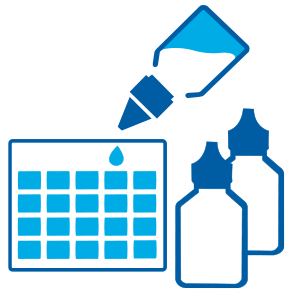
This is probably the most common pool care question we hear daily, and for good reason. Testing and balancing pool water is one of the most important aspects of pool maintenance. The answer for water testing frequency depends on a number of factors, including temperature, pool size, number of swimmers, and how frequently the pool is used. Warmer temperatures and higher usage require more frequent testing.
During the peak of swimming season, the average pool should be tested for sanitizer levels and pH balance at least two or three times per week. Test for total alkalinity (TA) at least once per week. Other aspects of water chemistry, including calcium hardness (CH), cyanuric acid (CYA), total dissolved solids (TDS), and the presence of metals and phosphates can be tested less frequently, at least once per month. The same holds true for salt levels in salt water pools, which aren’t as prone to rapid fluctuations. If you have a bunch of guests over, additional testing may be needed before and after the pool party.
How do I balance my pool water?

The first step in balancing pool water is to test it. There are many ways to test pool water, including test strips, liquid or titration test kits, or you can take a sample in for testing at your local Leslie's store. Make sure the levels are within the following recommended ranges:
- Free Available Chlorine (FAC): 1-4 parts per million (PPM)
- Total Available Chlorine (TAC): 1-4 PPM, within 0.2 PPM of FAC
- Bromine: 2-8 PPM
- Biguanide: 30-50 PPM
- pH: 7.4-7.6
- Total Alkalinity (TA): 80-120 PPM
- Calcium Hardness (CH): 200-400 PPM
- Cyanuric Acid (CYA): 30-100 PPM (80-100 PPM for salt pools)
- Total Dissolved Solids (TDS): Less than 2500 PPM
- Metals (Copper/Iron): 0 PPM
- Phosphates: 0 PPM
- Salt: 2700-3400 PPM
If your test results fall outside those ranges, you’ll need to re-balance the pool. Most aspects of water chemistry can be adjusted and managed with water balancing pool chemicals. Sanitizers, pH, and total alkalinity will need to be adjusted most frequently, and those chemicals are readily available at your local Leslie’s. Metals and phosphates can also be managed and removed with specialty products. For high levels of calcium hardness, total dissolved solids, cyanuric acid, and salt, it’s best to manage the water so the levels don’t get out of control. When this happens, the best solution is usually to partially drain the pool and add pure, fresh water to dilute those levels.
DIY TIP: Having trouble balancing your pool? We can help! Bring a water sample to your local Leslie’s store for a FREE 10-point water test. Our precisely accurate AccuBlue® water testing system can quickly pinpoint the issue, and we’ll set you up with the tools you need to get your water back on track.
How often should I shock the pool?

Again, this largely depends on temperatures and pool usage. In general, most pool owners shock their pool once a week after swimming season starts. You should also shock the pool after significant rains, during periods of hot weather, or after heavy usage. All of these events can quickly use up the existing chlorine residual in your pool. Not sure if your pool needs shock? Run a water test! To maintain a sanitary pool and prevent the unpleasant effect of chloramines, take a close look at the Free Available Chlorine and Total Available Chlorine levels. Ideally, these two readings should be identical or within 0.2 PPM of each other. The wider the gap, the more urgently you need to shock the pool. Refer to the water balance recommendations above during testing.
Do I really need to brush my pool?
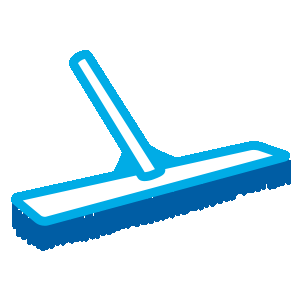
Yes! One thousand times, YES. This is such an important pool care question. Using a pool brush is one of the most commonly overlooked parts of pool maintenance, and it plays an important role in making sure your pool stays clean. Brushing the pool agitates the water, prevents algae spores from taking a hold on pool surfaces, and helps prevent unsightly stains and waterline scale. Make it a part of your maintenance routine to brush the pool at least once or twice per week. An automatic pool cleaner that scrubs the floors, walls, and waterline can greatly reduce the amount of time needed to manually brush each week. Even so, it’s extremely important to also scrub the corners and other areas of the pool that may not get much circulation. These areas are notorious harbors for algae growth.
How often should I clean the pool filter?

There’s really not a magic formula that will tell you how often to clean your pool filter. Again, it depends on how often the pool is used, the size of the filter, how much debris gets tracked into your pool, and whether or not you have a suction side pool cleaner. All of these factors will influence the amount of time between cleanings. No matter which type of pool filter you use — sand, cartridge, or diatomaceous earth — the rule of thumb is to clean the filter when the pressure gauge reads 8-10 PSI higher than the pressure reading when it’s clean.
How long should I run the pool pump?

During swimming season, the pool must turn over (meaning all water should circulate through the filtration system) at least once per day. For most pools with an adequately sized pump, this usually means about 8 hours per day (12+ hours per day with a variable speed pump). Not only does this help keep the pool chemicals evenly distributed, but circulation also prevents algae growth and other issues. To calculate pool pump run time, simply divide the pool volume by the pump’s turnover rate (gallons per minute or per hour). For example, a 20,000 gallon pool with a pump that pushes 2,500 gallons per hour would need to run exactly 8 hours per day. Run the pump longer if temperatures soar into the 100s, if you’re fighting an algae bloom, or if there’s been a significant weather event such as a dust storm or heavy rainfall.
PRO TIP: Effective July 19, 2021, regulations on the type of pump you can use for a pool will change drastically. For most applications, only variable speed pumps will follow the new federal efficiency standards. Variable speed pumps may run for more hours in the day, but they can still save you as much as 40-80% on your monthly energy bill versus a single speed pump.
What’s causing my pool water to be cloudy?
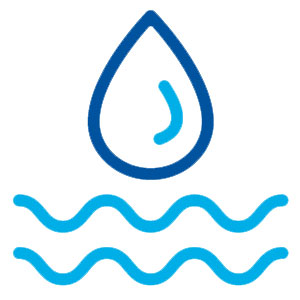
More often than not, the answer to this pool care question lies in the water balance ... or lack thereof. Poor circulation can also play a role in your murky water woes. There are a few steps to take to clear your cloudy pool water. Test and balance the water, shock the pool if needed, check to see if the pool filter needs to be cleaned, and make sure the pump and skimmer baskets are clean and clear of debris. All else aside, sometimes your pool just needs a good clarifier every once in a while. We recommend Leslie’s Ultra Bright Advanced to help clear up your cloudy pool water fast.
How do I get rid of algae?
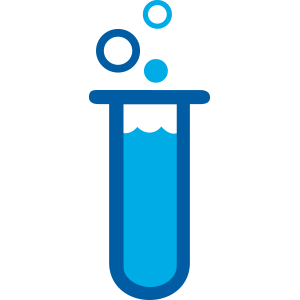
As the saying goes, an ounce of prevention is worth a pound of cure. The best way to eliminate algae is to prevent it from taking over your pool in the first place. This can be done with healthy water balance, brushing, and circulation. But if you find yourself grappling with an algae bloom, fear not! We’ve got you covered. First, you need to know which type of algae you’re dealing with. Green algae is the most common, followed by yellow algae. Thankfully, they’re both fairly easy to get rid of. Black algae is much less common, but its deep roots make it much more difficult to eliminate. Check out our blog post, How To Prevent and Remove Algae, for more helpful tips and a detailed guide on how to get rid of algae, no matter the type.
Fall and Winter Pool Care Questions
How do I keep my pool cover clean?
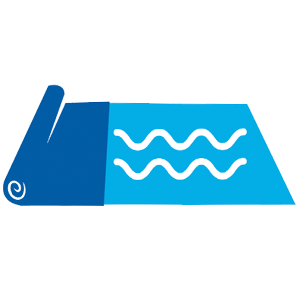
Keeping the cover free of excess water and debris is a crucial part of winter pool maintenance. Leaves, dirt, and water combine to form a not-so-lovely black tea that can seep or spill into the pool, leaving a nasty mess to clean up in the spring. Dry leaves are much easier to handle, and can be removed from the cover with a leaf blower or soft push broom. For wet leaves, you can just use a pool leaf rake to scoop them off the cover. Leaf nets can help if you have a lot of trees around the pool. If you have a solid pool cover, a cover pump will be your best friend through the winter.

How often do I need to test the pool water after closing?
Just because the pool is closed, doesn’t mean the maintenance stops completely! You’ll still need to test the water once or twice a month to make sure there’s still plenty of sanitizer in the water. Pool owners in warmer regions should test their pools more frequently than those in the snowbelt. Obviously, if the water is frozen, you won’t need to worry about testing until the pool thaws.
What do I do if the water level drops?
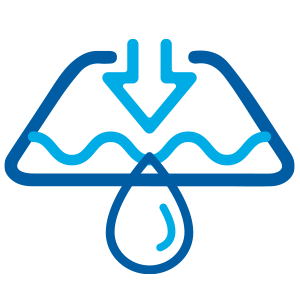
A new or existing leak can rear its ugly head and wreak havoc in your pool during the off-season. Left unchecked, a pool leak and low water levels will most often cause a winter cover failure. But in extreme cases, a leak can cause the walls to buckle or the pool to pop out of the ground. If conditions aren’t favorable to locate and repair the leak right away, at least refill the pool to proper winter levels, test and balance the water, and continue to monitor the water levels closely through the off-season.
DIY TIP: You don’t have to wait for winter to discover a pool leak. If you suspect a problem during swimming season, just do the bucket test. Check out our Bucket Test blog to learn how!
What should I do with my pool chemicals during the winter?

This is one pool care question we get often, and for good reason. Pool chemicals expire or lose potency at different rates. Dry chemicals tend to have a longer shelf life than liquid chemicals, as long as they are stored according to label recommendations. Most chemicals need a dark, dry, well-ventilated, secure storage location with a stable temperature between 50-70 degrees Fahrenheit. If your pool chemicals are exposed to extreme heat or cold, it’s best to properly dispose of them, so you can start fresh next pool season. Improperly stored chemicals quickly lose potency or may become ineffective altogether. For this reason, most pool owners will discard all unused chemicals at the end of each swimming season, and purchase new supplies each spring.
How do you repair a pool cover?

If you notice a small hole or tear in your pool cover, it’s important to repair it as quickly as possible. The cover is your pool’s primary defense against debris and sunlight, and you want to keep that armor strong. Weak spots in the cover can become a much bigger problem seemingly overnight. Nip the problem in the bud with a pool cover repair kit. Holes up to 8 inches can be easily fixed with a pool cover patch. Patches are available for all types of pool covers, from standard winter covers to solid or mesh safety covers. Most cover patch kits are peel and stick, applied to either side of the cover. For larger holes, consider the age of the cover and the extent of the damage. Industrial sewing companies can repair safety covers for a fee.
Still have questions? We're happy to help! Our blog is a knowledge base full of helpful tips and POOL information. Better yet, call or stop by your local Leslie's store to speak with one of our friendly, knowledgable associates. We'll do our best to help you find the answers to your pool questions.